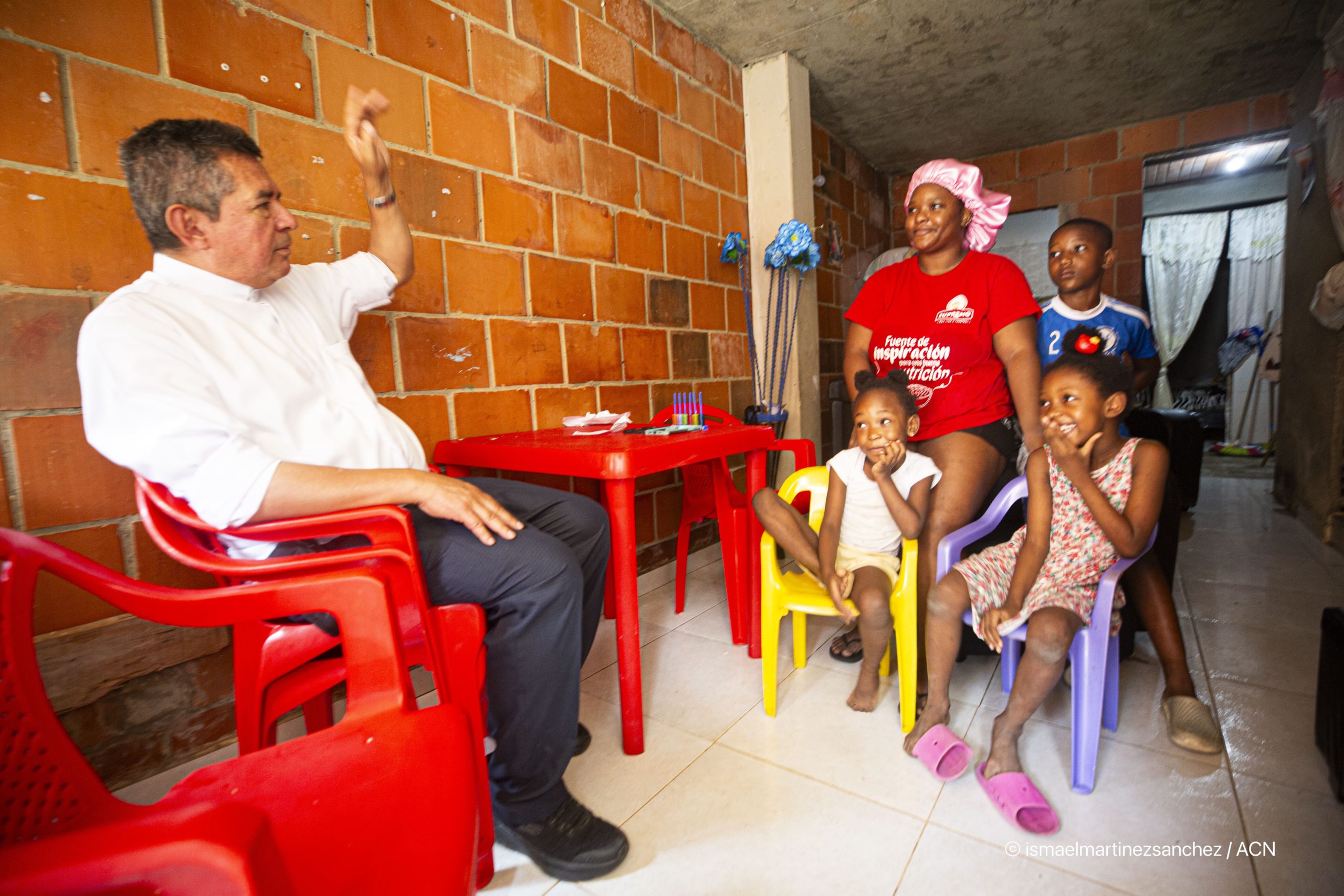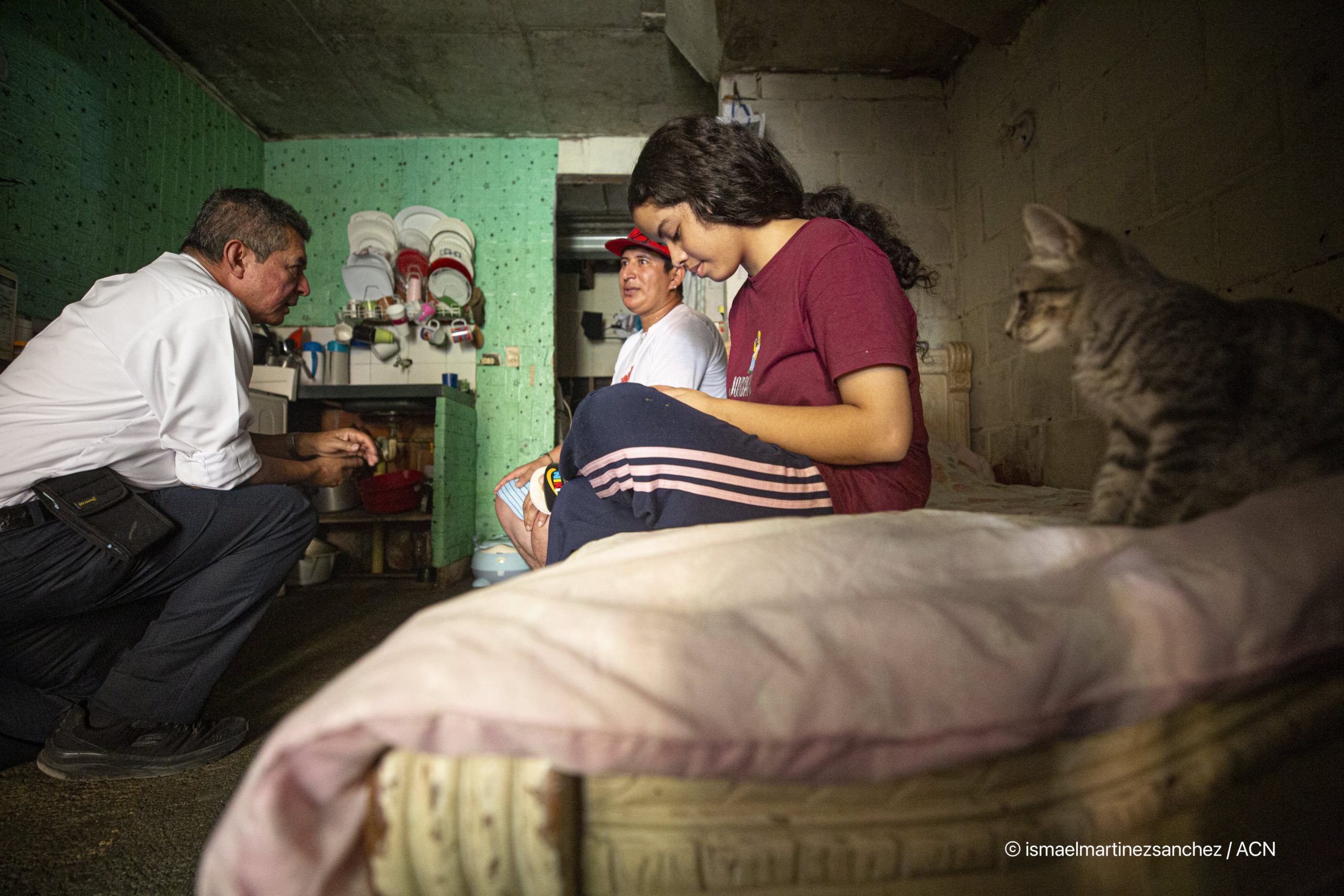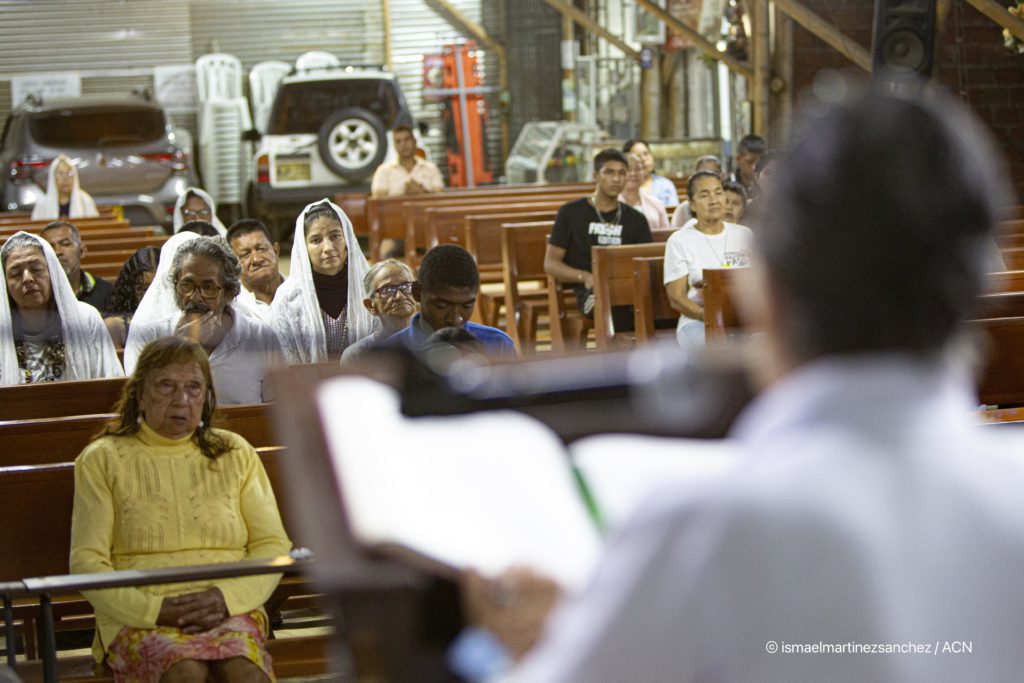Fr Gersaín Paz, the parish priest of one of the most dangerous neighbourhoods in all of Colombia, tells Aid to the Church in Need how faith and music have changed the life of many children in Cali, the capital of the drug trade, keeping them away from drugs and the temptation of suicide.
“This is Colombia’s biggest misfortune. Crime has become an industry,” laments Father Gersaín Paz, parish priest of Santa Marta, Cali, during a visit to Aid to the Church in Need (ACN). Drug trafficking, human trafficking and prostitution have spread across the country.
According to UN data, Colombia is the world’s largest producer of cocaine. Over 1,100 tonnes of drugs were seized in 2023, and an estimated 15,000 people fall victim to human trafficking each year.
Cali, located in the southwest of Colombia, in the Cauca Valley, is considered the “capital of the drug trade” and is home to alarming rates of violence, with an average of 1,500 murders every year. Fr Gersaín explains that it is “one of the poorest and most violent cities. In our neighbourhood, Santa Marta, we have two or three murders every week.”

This reality ends up drawing in children and adolescents as well. Many are forcefully recruited into criminal gangs or join them of their own free will. Lack of opportunities, school absenteeism and social deprivation lead many to get involved in these and other illicit activities. “Some teenagers resort to selling their bodies on the internet, for instance,” Fr Gersaín says, sorrowfully. “And we have heard of children who have killed other children.”
This worrying situation is also reflected in the number of suicides, which affects both adults and children. “We have at least two suicides a month in this area. It’s terrible. I asked a child who was cutting himself why he did so, and he replied: ‘I want to cry, but I can’t’,” Fr Gersaín tells ACN. “Only around a third of the 70,000 people who live around here are baptised, and only 10% are practicing. These people really need support,” he says.
Despite the violence and desolation, there is still room for hope. Many of the youngsters who used to be immersed in violence and delinquency have found a second chance in Fr Gersaín’s parish, which was enlarged and improved with ACN funding.
Fr Gersaín explains that since he arrived at the parish, he has changed the way he interacts with the adolescents, using music and other creative initiatives to motivate them. During retreats, he asks them to disconnect from everything for a few hours, to be in silence, which at the beginning seemed impossible to them. Nonetheless, the priest comments that, with time, the youth have learned to “really enjoy this experience and have shown a great capacity for prayer”.
“I don’t know any teenagers who, after joining us, went back to drugs”
Fr Gersaín continues to search for ways to reach everyone. The church room which was once only used for catechesis is now also a music conservatory, where the community welcomes youngsters who are looking for a second chance. Here they receive training on the violin and piano, and other musical instruments. “Some of the children who studied music here, now earn a living playing around the world, or are getting their doctorates in Switzerland and Vienna,” Fr Gersaín explains, beaming. “We are talking about children from very vulnerable backgrounds, who used to living in extremely tough conditions. I am convinced that with the right opportunities, we could get rid of the violence. It has already decreased by around 80% because of the diocesan initiatives,” he stresses. The priest further explains that, after going through the parish programme, young people begin to plan their own life projects. “I don’t know any teenager who, after joining us, went back to drugs,” says the ACN project partner.

Priests traditionally play a key role in Latin American culture, since because of the strong Catholic tradition and the scarcity of social services in some areas, they often take on the role of community leaders, providing support in education and health, and acting as mediators in conflict situations. According to Fr Gersaín, “it is crucial to put this to use for the common good,” and he stresses the importance of clergy formation: “Priests have to receive solid training, not only in terms of liturgy, but also in how to deal with real problems, such as violence and unemployment.”
A radical change: a new church to support the younger generations
The parish was established 15 years ago. At first, when it was entrusted to Fr Gersaín, it had no electricity, possums wandered through the parish hall, and the heat was unbearable. “We didn’t even have bathrooms,” he recalls. “Now we have a church which is frankly beautiful and spacious. People are very excited about the upcoming official inauguration; it is a wonderful space. It has been a radical change.”
Having a place to meet is essential for any community, the priest says. “If I have a sacristy and an adequate office, I can better receive people. This is a dream for the parishioners.” And he concludes: “Thanks to ACN we can continue to grow and adapt to the community’s needs. Pastoral work has to be an important pillar, to help to guide and support the new generations”.


